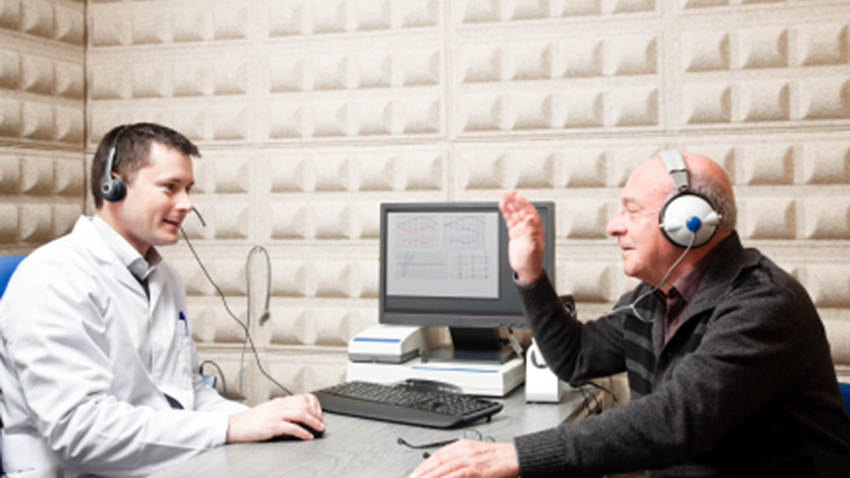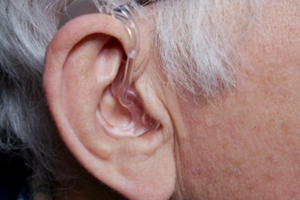Hearing Audiology
Knowledge is Power.
True/False - Quiz: Do You Understand Hearing Audiology?
Information - Hearing Audiology
 Hearing is one of the most important senses we have. It allows us to interact with our environment and with other people. People with hearing loss may have trouble interacting with others and being to isolate themselves. Treating hearing loss helps people not only hear better, but feel better about themselves by overcoming obstacles with communication.
Hearing is one of the most important senses we have. It allows us to interact with our environment and with other people. People with hearing loss may have trouble interacting with others and being to isolate themselves. Treating hearing loss helps people not only hear better, but feel better about themselves by overcoming obstacles with communication.
Causes & Types of Hearing Problems
Hearing loss is often part of getting older. One of the most common causes of hearing problems such as tinnitus is exposure to loud noise. Tinnitus is any sound that you hear in your ears or your head such as ringing, buzzing, pulsing, hissing that does not have an external sound source. The cause of tinnitus is poorly understood. The most common theory on the cause of tinnitus is that it is a result of cochlear hair cell damage, which is often caused by noise.
There are three main causes of hearing loss:
• Conductive: a problem getting sound to the ear
• Sensorineural: Usually a problem within the cochlea or the ear itself
• A combination of both
Assessing and treating hearing and hearing loss is a multi-step assessment. The healthcare provider will collect information about the patient's medical history, then do a physical examination of the ear. Sometimes the problem is as simple as wax blocking the ear canal. Following that the physician will make a diagnosis and discuss treatments.
Hearing Loss Treatments
 The best way to protect yourself from damage caused by loud noise is to wear hearing protection. There are a number of different hearing protection devices available, ranging from inexpensive foam earplugs to pricier custom-made silicon plugs. There are a variety of different hearing aids available to treat hearing loss, including:
The best way to protect yourself from damage caused by loud noise is to wear hearing protection. There are a number of different hearing protection devices available, ranging from inexpensive foam earplugs to pricier custom-made silicon plugs. There are a variety of different hearing aids available to treat hearing loss, including:
• Behind the ear
• Receiver in the canal
• In-ear
• Canal
• Completely in the canal
• Invisible in the canal
There are also listening devices such as FM systems and systems to use with your television and telephone to help improve your hearing. If there's a hole and/or scarring in the eardrum, or the issue is with the bones of hearing that sit in the middle ear, you may need surgery. If you wear hearing aids, you should see your healthcare provider periodically for electrocoustic verification to make sure that they continue to function like they are expected to.
Talk to your family physician if you'd like more information on hearing audiology.
Visit HealthChoicesFirst.com for more videos and resources on family health.
Print this Action Plan and check off items that you want to discuss with your healthcare provider
-
One of the most common causes of hearing problems such as tinnitus is exposure to loud noise. Tinnitus is any sound that you hear in your ears or your head such as ringing, buzzing, pulsing, hissing that does not have an external sound source.
-
The three main causes of hearing loss are conductive (a problem getting sound to the ear), sensorineural (usually a problem within the cochlea or the ear itself) and a combination of both.
-
Assessing and treating hearing and hearing loss is a multi-step assessment. The healthcare provider will collect information about the patient's medical history, then do a physical examination of the ear. Following that the physician will make a diagnosis and discuss treatments.
-
There are a variety of different hearing aids available to treat hearing loss, including behind the ear, receiver in the canal, in-ear, canal, completely in the canal and invisible in the canal.
-
If there's a hole and/or scarring in the eardrum, or the issue is with the bones of hearing that sit in the middle ear, you may need surgery.



